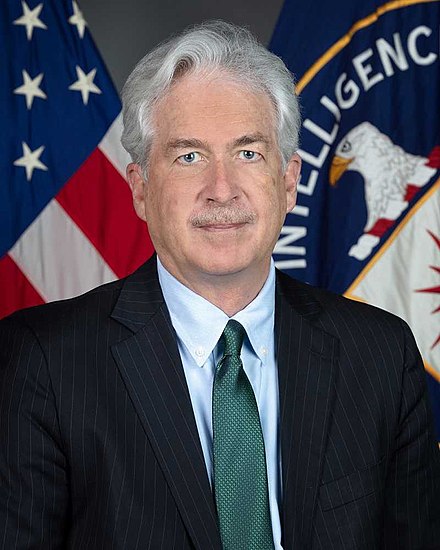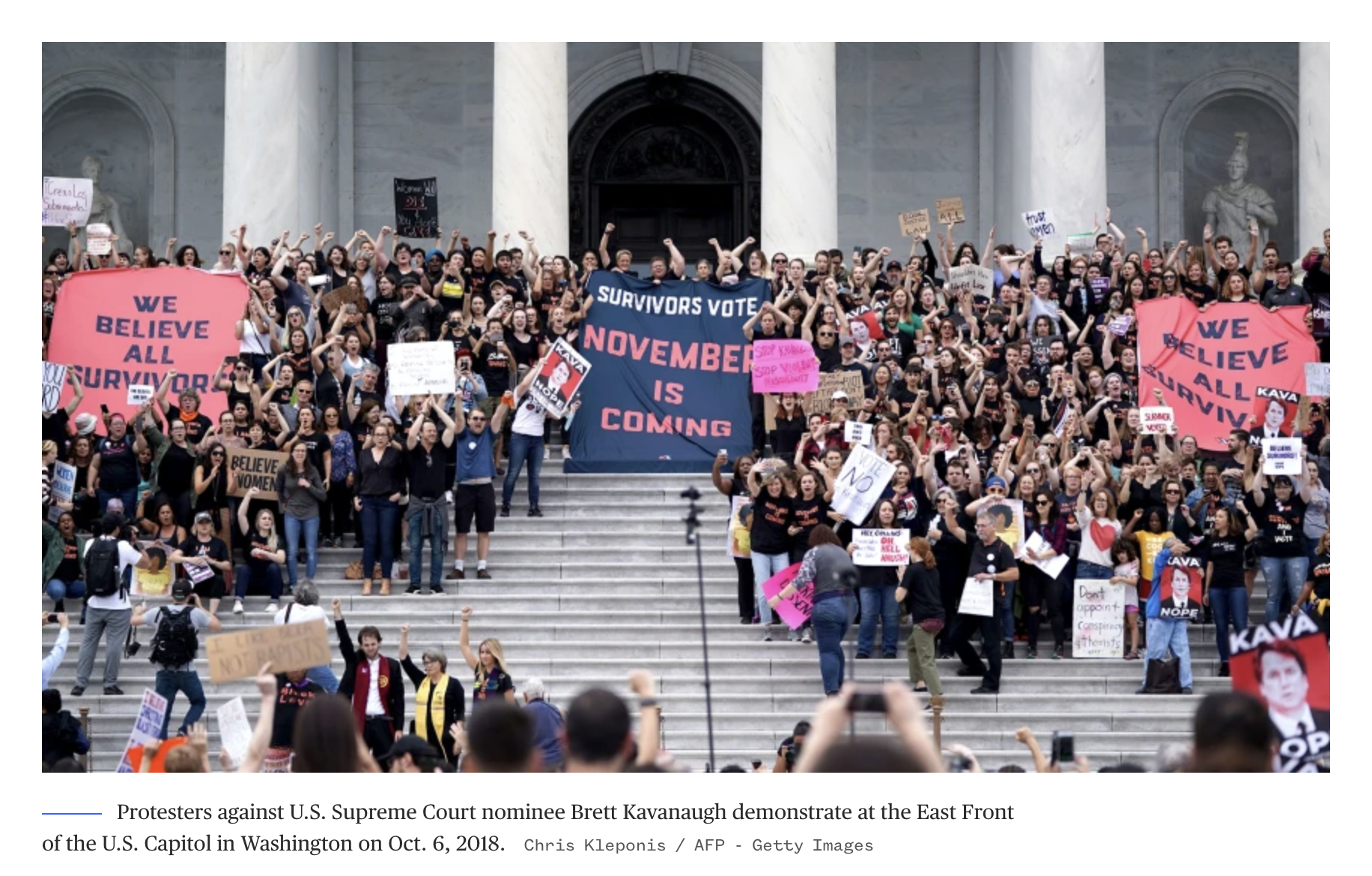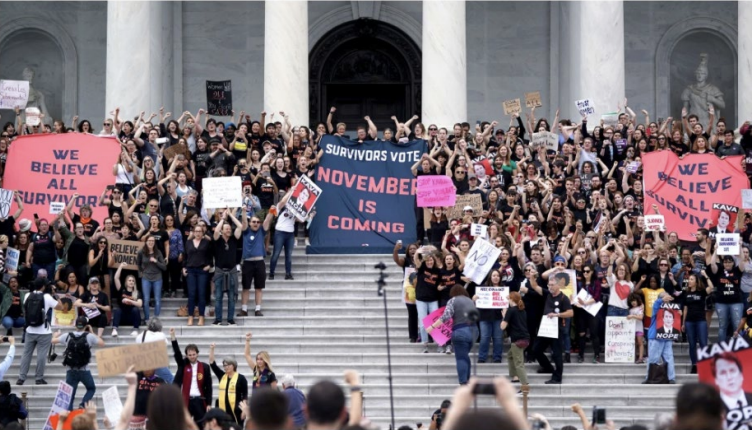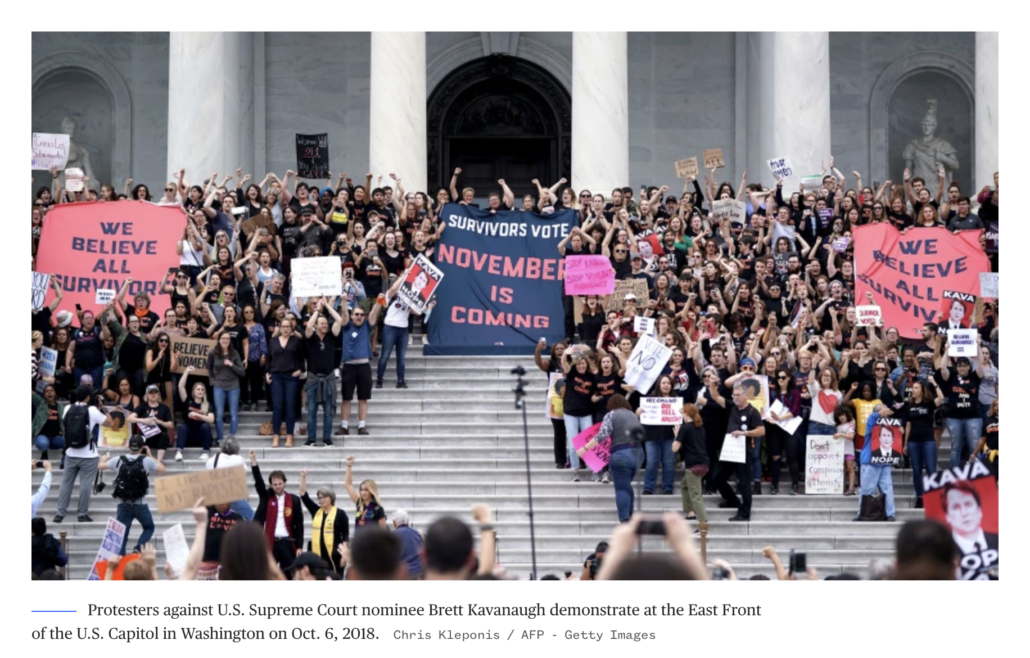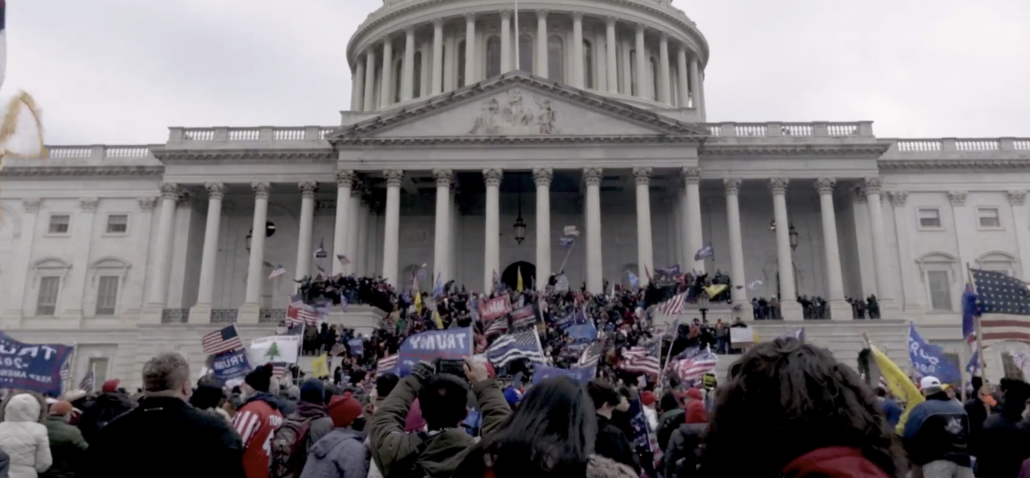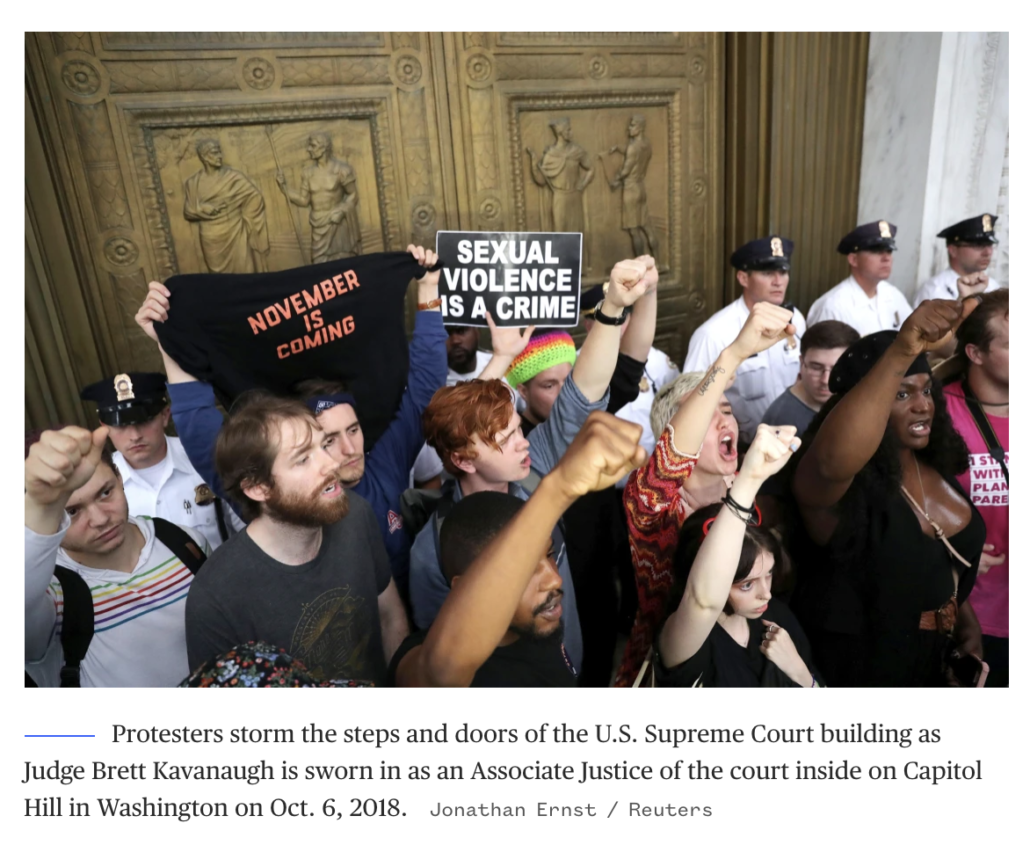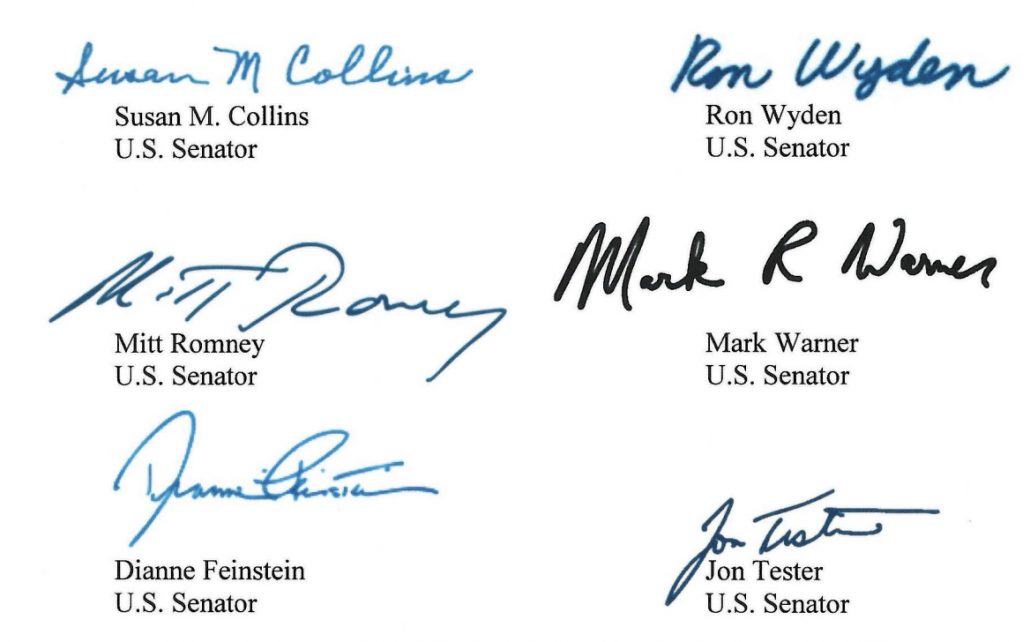The Education of Ezra Klein
As I said in this post, I believe Ezra Klein’s column on a possible shutdown, which many lefties have celebrated, is rambling and often confused.
It looks something like this:
- 19¶¶ comparing the upcoming funding fight with the March one
- 10¶¶ describing that now, unlike March, Trump is consolidating his authoritarian power
- 9¶¶ describing a shutdown as “attentional”
- 6¶¶ describing Democrats’ powerlessness
- 5¶¶ on power
Within the column, Ezra has laid out a somewhat facile description of fascism, without discussion of how we got here or how to fight it. Having not done that work, Ezra is left, “hop[ing] somebody has better ideas than I do,” which is precisely the same kind of fecklessness of which he accuses Dems.
That fecklessness stems in significant part from Ezra’s inattention, in his description of Trump’s fascism, to Trump’s usurpation of Congress’ power of the purse, which is at the core of this funding fight.
Without explicitly doing so, Ezra describes Trump’s fascism in terms of a mafia state, as opposed to one of several other possible terms (including fascism) you might use to describe Trump.
You could still, under Mafia rule, get the trash picked up or buy construction materials. But the point of those industries had become the preservation and expansion of the Mafia’s power and wealth. This is what Trump is doing to the government.
The rest of this section describing fascism is muddled, down to repeatedly changing topics within paragraphs (which may be the fault of editors). Three paragraphs focus on Trump’s efforts to fire experts who provide Trump bad news and the ways he is using government to punish his enemies. One paragraph describes his bribery in plain sight. Half a paragraph describes ICE and Guard invasions without mentioning the racist animus of both. One paragraph describes the gold lamé vandalism Trump has done to the Oval Office. Another describes Steve Witkoff’s sycophancy. Half a paragraph describes stuff that happened before March.
We’ve watched Trump systematically purge the government of inspectors general, of military JAGs and officers, of federal prosecutors — anyone who might stand in the way of his corruption or his accumulation or exercise of power. It is astonishing that the Jan. 6 rioters have been pardoned and that dozens of the Justice Department lawyers who prosecuted them have been fired.
If the pardon of Jan6ers was so astonishing (and Ezra focuses on it in his video, too), then it should have raised the same alarm in March.
This passage reads, to me, like a centrist trying to persuade others that this really is authoritarianism. But the description is silent about a number of things, including both white nationalism and spectacle, that are key to Trump’s power. Ezra is particularly blind to the latter.
More importantly, nothing in the section where Ezra describes Trump’s fascism addresses Trump’s unconstitutional abuse of the power of the purse. Even when he discusses those things in the earlier shutdown section — describing how government grants were “being choked off and reworked into tools of political power,” imposing “shocking tariffs on Mexico and Canada,” and (quoting a law prof he interviewed) SCOTUS’ rubber stamp for Trump “Refus[ing] to spend money appropriated by Congress” — Ezra does not mention that all of these actions usurp Congress’ power of the purse, precisely the task before them this month. Ezra mentions neither the Republican approval of $9 billion in rescissions of spending on foreign aid and public broadcasting, nor Russ Vought’s attempt to carry out pocket rescissions of appropriated spending, both of which animate Democratic thinking on this shutdown.
In other words, amid a somewhat facile but very earnest description of Trump’s fascism, Ezra never gets around to describing how this funding fight plays into Trump’s efforts to domesticate Republicans in Congress — in part — by stripping Congress of the power of the purse. No wonder Ezra can’t come up with a message that works. He has ignored one of the fundamental issues behind this shutdown that didn’t exist in March: serial Congressional Republican capitulation to Trump’s demands that they cede him their constitutional power of the purse.
Meanwhile, Ezra (the guy who wrote the most influential piece on why Joe Biden had to step down last year) misunderstands the attention environment. He describes that a shutdown is an opportunity to focus attention on what he describes as an “argument.”
A shutdown is an attentional event. It’s an effort to turn the diffuse crisis of Trump’s corrupting of the government into an acute crisis that the media, that the public, will actually pay attention to.
Right now, Democrats have no power, so no one cares what they have to say. A shutdown would make people listen. But then Democrats would have to actually win the argument. They would need to have an argument. They would need a clear set of demands that kept them on the right side of public opinion and dramatized what is happening to the country right now.
He correctly observes that Dems had not prepared for the “attentional” aspects of a shutdown in March.
And I thought there was a fourth argument: Democrats had not prepared for a shutdown. They had not explained why they were shutting the government down or what they wanted to achieve. They had no strategy. They had no message. The demand I was hearing them make was that the spending bill needed more bipartisan negotiation. It was unbearably lame.
But then, in a shocking passage, he claims to believe Trump’s attentional hold — his spectacle — stems instead from his presidential power even while he ignores some of what Dems have done to fight back.
Power is a coordination problem. Trump can’t do much on his own. The advantage he has is the power to create coordination — he can send clearer signals, he has a louder megaphone, he can wield stronger punishments and rewards.
People do what others do. Each law firm that bent the knee to Trump made it harder for the next firm to say no. The universities that fell to Trump created the same problem — that’s why it mattered when Harvard fought back. Everyone in society — every person, every institution — is a node of coordination. And if you look at Democrats in Congress right now, the signal they’re sending is not to take any risks. Everything is normal. Just wait for the election. I think sending that signal is a mistake.
Ezra, like a lot of lefty pundits, has not seen — has not paid “attention” to — some of the things that Democrats have done to weigh in here. Like Brian Beutler did recently in a post structured, like Ezra’s, as a scold to Democrats, Ezra seems to have no fucking clue that sixteen Dems got the attention of law firms that had or might consider capitulating to Trump by raising bribery concerns. When I called out Beutler for falsely claiming Dems had not done such a thing, Sean Casten, who signed the letter, told me he still hears from law firms about the effort. It’s as if these pundits haven’t thought about the multiple things (the efforts of law firm associates and law school students were critically important as well, not to mention lawsuits that a shutdown would significantly slow) that did halt the flood of capitulation and so might stop other capitulation, including that of Republicans in Congress.
Ezra, the longtime wonk who chose not to use his platform to talk about all Biden’s policy successes last year, opting instead to kick off an intra-party squabble, appears not to understand that Trump exercised that attentional power without holding the White House. Like the Democrats Ezra criticizes, he is failing attentional basics.
You have to understand Trump’s attentional power — the power that explains why Democrats failed to claim credit for what Biden did, the power that (along with lazy lefty punditry) exacerbates real and perceived inaction that results in Dems’ shitty polling — to understand why Republicans in Congress have capitulated just like law firms and a few universities did.
As a Democratic Senator hinted to Ezra, many pundits are seeking emotional catharsis, without imagining what tactical efficacy would be.
I was talking with a Democratic senator I respect, and he asked me a good question: Everything you say about what Trump is doing might be true. Everything you say about the kind of emergency this is might be right. But is a government shutdown the answer? Or is it a desire for emotional catharsis that might be self-defeating? Sometimes the best strategy is restraint.
This entire discussion should start from a theory of how to fight fascism.
As I laid out here, members of Congress have a unique role in such a fight, but it’s not the cathartic leadership lefty pundits want, leadership that is coming from other places (most recently from governors facing invasions). There are two — probably three — ways they can try to undercut Trump’s power, all based on a kind of political accountability that does not lend itself to catharsis, as well as a willingness to negotiate that Dems have decided equates to capitulation.
The first — the one Ezra nods to — is the 2026 election, winning one or both houses of Congress and with them to start halting Trump’s power grab. But, as Ezra correctly notes, Trump’s consolidation threatens what would otherwise be an easy House win.
The 2026 midterms are 14 months away. The machinery of the state is being organized to entrench Republican power through redistricting, to control information, to punish and harass enemies, to create a masked paramilitary force roaming the streets and carrying out Trump’s commands. Do you just let that roll forward and hope for the best?
Ezra ignores the second, more immediate possibility, one on which Dems have almost entirely failed but which are precisely at issue here: to peel off four Senators (after Trump successfully killed an effort to defeat Pete Hegseth, Democrats won four Senate supporters on a single bill opposing tariffs, but on little else) or up to eight House Republicans. That kind of Republican opposition to Trump policies exists on discrete issues: In addition to tariffs, Ukraine, war in Iran, various funding priorities (most terrible), Medicaid. It actually did exist on March’s spending bill, but Trump killed it, which is one reason no Democrats, in or outside Congress, were prepared in March.
As I noted on Nicole Sandler’s show on Friday, not only are at least five Republican Senators opposed to RFK Jr’s recent efforts to change vaccine recommendations, those five include Majority Whip John Barrasso.
Republicans in sufficient numbers oppose Trump policies, they’re all just terrified to act on their opposition. Like it or not, Dems have not given up on persuading them to do so. That may be the right decision. If they ever succeed, it would be the quickest way to slow or maybe reverse Trump’s fascism. Lefty pundits loathe that effort because it looks like capitulation, but if Democrats actually believe they might do this, it is sound tactically.
This leads me to the third, hypothetical role that Dems in Congress might play in reversing Trump’s fascism: the possibility that one or several predictable catastrophes — be it epidemic, supply chain failures, financial collapse, extreme weather events, or something else — will lead Republicans to beg Democrats to bail them out again, as happened in 2008 and 2020.
That’s one of two reasons that explains the Democratic focus on healthcare: because Republicans know they were wrong to cut Medicaid and rural healthcare like they did. Hate that relentless focus, done in the face of Democratic attentional failures, all you want, but Trump just attempted to rebrand the Big Ugly Bill because he knows it is a political disaster. The relentless Democratic attention has succeeded, thus far, in explaining the problems with the Big Ugly Bill.
And that’s a useful lesson, because whatever else, Democrats need to do the groundwork to hold Trump — and Republicans in Congress — accountable for the predictable catastrophes they cause, because otherwise Republicans will blame trans people (as they’re trying to do on gun violence) or migrants (as they’re trying to do on RFK’s measles epidemic), a classic fascist dynamic. The focus on the coming Republican-caused healthcare disaster is tedious, but also necessary to ensure accountability, most immediately in rural communities that are losing their hospitals.
But the more aspirational goal — to peel off Republicans in Congress — is one of several reasons why Jeffrey Epstein matters, and why Democrats claiming more important things, like invasions of blue cities, are just a distraction from Epstein is justifiable, even if doomsters can no longer understand that politics sometimes involves cynical posturing. In Congress, Epstein is an unprecedented opportunity, as already demonstrated in July, when House Dems, in partnership with Tom Massie (the kind of partnership lefties condemn across the board) and with the full support of Hakeem Jeffries, chased Republicans away a week early — literally deprived them of the tools of their majority — rather than face a dangerous vote on Epstein. Epstein is literally the first thing in a decade that has thwarted Trump’s efforts to control and redirect attention. If, as expected, James Walkinshaw and Adelita Grijalva win special elections today and two weeks from today, respectively, there should be enough votes to force a vote on releasing the Epstein files, almost perfectly coinciding with this funding fight. Trump whipped hard against the Khanna-Massie discharge petition, and he’ll surely whip just as hard against a vote to release the files (possibly with more success in the Senate than the House). But as the release of the Epstein birthday book exposing Trump’s lies attests, not even James Comer is fully in control of what will happen in the coming weeks. And Republicans have to know that their unwavering obedience to Trump demands could soon make them look like pedophiles in the eyes of a base violently opposed to such.
Which brings us, finally, back to Dem strategy (if you can call it that) on government funding. Much of the critical and doomerist discussion of the fight focuses on Democrats’ offer to negotiate a short term funding bill with health care funding, but they ignore that the beat reporting which they sometimes cite describes a two-part offer: Healthcare, plus a reversal on Trump’s attack on funding. They’re ignoring details like this:
Party leaders have signaled that they plan to use the looming funding showdown to press for reversals of Medicaid cuts, extensions of expiring Affordable Care Act subsidies, and limits on President Donald Trump’s spending authority—even if it means shouldering the political risk if negotiations collapse.
[snip]
Coons added that Democrats also want assurances that Trump cannot simply claw back funding after Congress approves it. “We need to trust you so that when we reach an appropriations deal it sticks, and reverses the damage that’s been done,” Coons said, pointing to the President’s repeated use of rescissions to cancel spending. [my emphasis]
The healthcare funding is important. But if it is yoked with a demand that Republicans reclaim their constitutional power of the purse, it would be a far more important stand against Trump. It would be the appropriate, minimal ask. And if Democrats make that clear in the next two weeks, it would also be the message that Ezra can’t discern in a post ignoring the centrality of rescissions to this fight.
Notably, Politico describes how this battle is creating fissures within Republican ranks, as well as between the parties.
Battle lines are emerging on Capitol Hill in the fight to avert a government shutdown in three weeks — and it’s not just Republicans vs. Democrats.
On one side, fiscal hawks are joining with the White House to keep federal agencies running on static funding levels, ideally into January or longer. On the other, Democrats and some top Republicans want to punt no further than November to buy congressional negotiators more time to cut a cross-party compromise on fresh funding totals for federal programs.
In the end, the standoff could hinge on Speaker Mike Johnson’s appetite for trying to pass a funding package backed by President Donald Trump but not Democrats, as he did in the spring — and whether Senate Democrats once again capitulate rather than see government operations grind to a halt Oct. 1.
“They jammed us last time,” Sen. Brian Schatz (D-Hawaii), a top appropriator, said in an interview. “And I am encouraging my Republican friends who want to do appropriations to understand that that won’t work this time.”
Even more irate after Trump’s latest move to unilaterally cancel almost $5 billion in foreign aid through a so-called pocket rescission, Democrats are warning there will be a funding lapse if Republicans don’t negotiate with them. And while they’re being cautious not to box themselves in with ultimatums on funding totals or specific policy demands, they’re starting to flex their muscles by floating concessions Republicans could make in exchange for support across the aisle.
That includes making a deal by the end of the year to head off the expiration of enhanced health insurance subsidies that would result in premium hikes come January for millions of Americans.
Appropriators Tom Cole and Susan Collins have worked hard to accrue power that Trump has usurped. Neither, alone, can convince their colleagues to start acting like a co-equal branch of government again.
Those are quite literally the stakes — the stakes that barely got mentioned in wonky Ezra’s 3,200-word post talking about failures of messaging, even though those stakes have been reported in the beat press for weeks.
Trump has told Congress he doesn’t want Congress and its co-equal constitutional role to exist anymore. Such a stance provides Dems in Congress an opportunity to convince their colleagues they should defy their liege. It also ought to guide messaging, especially for people with a platform like Ezra’s.
But it’s really no more than an opportunity, similar to opportunities Republicans have declined to avail themselves of in recent weeks.
I certainly think it likely that fewer than four Republican Senators will assert their own prerogatives, and in that case, I think Dems have little choice but to refuse to participate in the willful capitulation of constitutional authority. The message, though, would be simple — or should be if one-time wonks like Ezra can figure it out before then. Republicans are refusing to perform the role that the Constitution reserves for them.
That is, quite literally, what this is about.
I’d say that’s an easy message. It ought to be a message that would hold not just Trump, but individual members of Congress who’ll be accountable to all the constituents who’ll suffer in a shutdown, necessary leverage to ensure that government ever reopens (one of Schumer’s points in March that Ezra simply ignores). But thus far, the push for feckless catharsis seems far stronger than the search for tools to fight fascism.
Update: Matt Glassman and Jonathan Bernstein both think a shutdown won’t work the way Dems want it to, which are both worth a read. Like Ezra, neither presents a plan to fight fascism.








